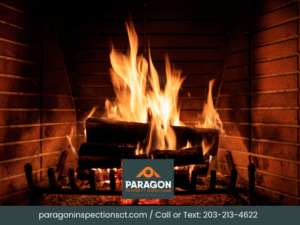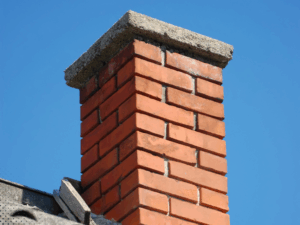Published: September 2025
 Fireplace and Chimney Inspections Before Winter Use: A Comprehensive Guide
Fireplace and Chimney Inspections Before Winter Use: A Comprehensive Guide
As the crisp air of autumn starts to settle in, it’s the perfect time to prepare your home for the colder months ahead. One of the most crucial aspects of winter readiness is ensuring your fireplace and chimney are safe and efficient. At Paragon Property Inspections LLC, led by Bert Ducas, we specialize in comprehensive home inspections, including thorough assessments of your fireplace and chimney systems. Here’s why scheduling an inspection before winter use is essential.
Why Fireplace and Chimney Inspections Matter
1. Preventing Chimney Fires
Chimney fires are a significant risk during winter. Creosote, a flammable byproduct of burning wood, can accumulate in your chimney over time. If not removed, this buildup can ignite, leading to dangerous fires. Regular inspections and cleanings help prevent such hazards.
- Ensuring Proper Ventilation
A blocked or damaged chimney can impede the proper venting of smoke and gases. This not only reduces the efficiency of your fireplace but also poses health risks due to the potential buildup of carbon monoxide. An inspection ensures your chimney is clear and functioning correctly.
3. Detecting Structural Issues Early
Over time, chimneys can develop cracks, loose bricks, or other structural issues. These problems can lead to water damage, reduced efficiency, and increased repair costs if left unaddressed. Regular inspections help identify and address these issues promptly.
 What to Expect During a Professional Inspection
What to Expect During a Professional Inspection
When you schedule an inspection with Paragon Property Inspections LLC, our certified inspectors will:
- Examine the Chimney Structure: Assess the condition of bricks, mortar, and the chimney crown for any signs of damage.
- Check for Creosote Buildup: Determine if there’s an excessive accumulation of creosote that needs to be cleaned.
- Inspect the Flue: Ensure the flue is clear of obstructions and in good condition to allow proper ventilation.
- Test the Damper: Verify that the damper opens and closes smoothly, sealing tightly when closed.
- Assess the Fireplace: Check the firebox, hearth, and surrounding areas for any signs of wear or damage.
- Evaluate Safety Features: Ensure that smoke and carbon monoxide detectors are installed and functioning properly.
Frequently Asked Questions (FAQ)
Q1: How often should I have my chimney inspected?
It’s recommended to have your chimney inspected at least once a year, preferably before the start of the heating season.
Q2: Can I clean my chimney myself?
While some homeowners attempt to clean their chimneys themselves, it’s best to hire a professional. Improper cleaning can be hazardous and may not effectively remove all creosote buildup.
Q3: What are the signs that my chimney needs cleaning?
Signs include a smoky smell in the room, visible soot or creosote deposits, or smoke backing up into the living space.
Q4: How can I prevent creosote buildup?
Burning only dry, seasoned wood and maintaining a hot, efficient fire can help minimize creosote accumulation.
Ready to Prepare Your Fireplace for Winter?
Don’t wait until the first cold snap to ensure your fireplace and chimney are safe and ready for use. Contact Paragon Property Inspections LLC today to schedule your comprehensive inspection. We are dedicated to providing thorough and professional services to keep your home safe and comfortable.


